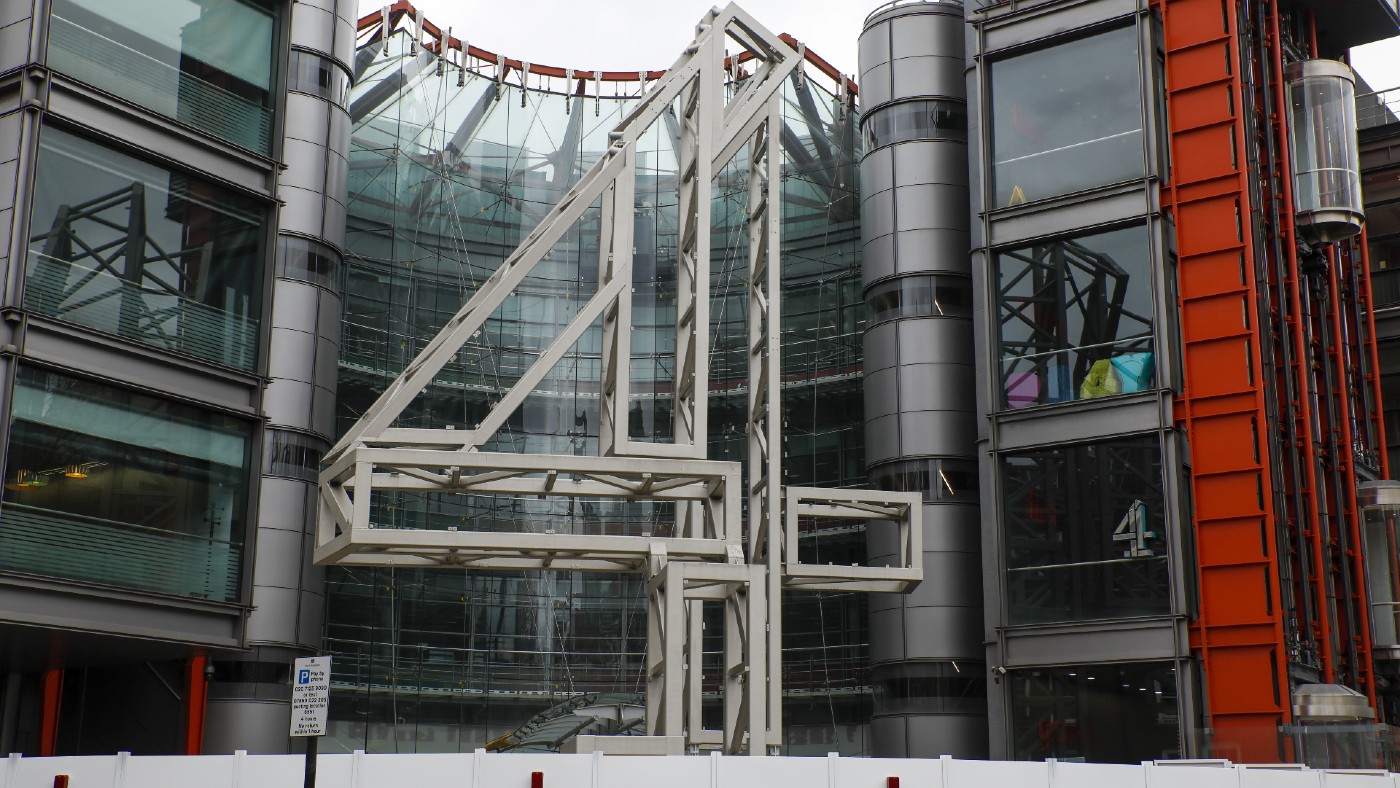Is Channel 4 a victim of Tory spite?
The institution is ‘a great British success story’ – so why sell it?

A free daily email with the biggest news stories of the day – and the best features from TheWeek.com
You are now subscribed
Your newsletter sign-up was successful
Forty years after it was launched by Margaret Thatcher’s government, Channel 4 is being put up for sale, said Steven Barnett on The Conversation. The decision to press ahead with legislation this year, announced by Culture Secretary Nadine Dorries, is a risky one which has been widely condemned as an act of “cultural vandalism”. Channel 4 is, after all, “a great British success story”.
A stateowned channel that doesn’t employ its own creative staff, it commissions programmes from independent production companies – a flourishing sector that it has played a vital role in creating. It supports more than 10,000 jobs, all over the UK; it is required by law to promote diversity, innovation and new talent. It doesn’t cost the taxpayer a penny. And it makes a profit, too – a “record” £74m in 2020, all of which was ploughed back into programmes. So why sell it? Dorries says putting it in private hands will encourage innovation and allow it to “compete more effectively” with streaming services such as Netflix and Amazon Prime.
That makes no sense at all, said Ayesha Hazarika in the London Evening Standard. Channel 4 already has a “huge streaming service”, All4, and makes globally successful shows from Gogglebox and Come Dine With Me to dramas such as It’s a Sin and comedies including Derry Girls. It’s edgy and irreverent, but the channel also has a strong news and educational remit, which could be lost if it becomes “Netflix-lite”.
The Week
Escape your echo chamber. Get the facts behind the news, plus analysis from multiple perspectives.

Sign up for The Week's Free Newsletters
From our morning news briefing to a weekly Good News Newsletter, get the best of The Week delivered directly to your inbox.
From our morning news briefing to a weekly Good News Newsletter, get the best of The Week delivered directly to your inbox.
The only convincing explanation for the privatisation is that it is driven by senior Tories’ “visceral hatred” of Channel 4 News. The Conservative MP Julian Knight, chairman of the Digital, Culture, Media and Sport Committee, suggested that it was “revenge” for the news show’s “biased” coverage of Brexit and its “personal attacks” on the PM (whom it replaced with a block of ice when he failed to show up for a climate change debate). How ridiculous, to wreck one of Thatcher’s greatest cultural achievements out of sheer spite.
The idea that Thatcher would oppose Channel 4’s privatisation is “ludicrous”, said Andrew Roberts in The Daily Telegraph: she would be “cheering on” Dorries’ plans. Back in 1982, there were only three TV channels, and Thatcher wanted “a genuine diversity of views” broadcast, something that Channel 4 once did. Now there are 333 channels and it has become a “virulently anti-Tory, crypto-Corbynite propaganda outlet, parroting the views of London’s metropolitan establishment”. Thatcher would be embarrassed by the Frankenstein’s monster she had created, and would want it exposed to “the cold winds of competition, albeit around 20 years too late”
A free daily email with the biggest news stories of the day – and the best features from TheWeek.com
-
 Sepsis ‘breakthrough’: the world’s first targeted treatment?
Sepsis ‘breakthrough’: the world’s first targeted treatment?The Explainer New drug could reverse effects of sepsis, rather than trying to treat infection with antibiotics
-
 James Van Der Beek obituary: fresh-faced Dawson’s Creek star
James Van Der Beek obituary: fresh-faced Dawson’s Creek starIn The Spotlight Van Der Beek fronted one of the most successful teen dramas of the 90s – but his Dawson fame proved a double-edged sword
-
 Is Andrew’s arrest the end for the monarchy?
Is Andrew’s arrest the end for the monarchy?Today's Big Question The King has distanced the Royal Family from his disgraced brother but a ‘fit of revolutionary disgust’ could still wipe them out
-
 How corrupt is the UK?
How corrupt is the UK?The Explainer Decline in standards ‘risks becoming a defining feature of our political culture’ as Britain falls to lowest ever score on global index
-
 Democrats push for ICE accountability
Democrats push for ICE accountabilityFeature U.S. citizens shot and violently detained by immigration agents testify at Capitol Hill hearing
-
 Fulton County: A dress rehearsal for election theft?
Fulton County: A dress rehearsal for election theft?Feature Director of National Intelligence Tulsi Gabbard is Trump's de facto ‘voter fraud’ czar
-
 ‘Melania’: A film about nothing
‘Melania’: A film about nothingFeature Not telling all
-
 Greenland: The lasting damage of Trump’s tantrum
Greenland: The lasting damage of Trump’s tantrumFeature His desire for Greenland has seemingly faded away
-
 Minneapolis: The power of a boy’s photo
Minneapolis: The power of a boy’s photoFeature An image of Liam Conejo Ramos being detained lit up social media
-
 The price of forgiveness
The price of forgivenessFeature Trump’s unprecedented use of pardons has turned clemency into a big business.
-
 The ‘mad king’: has Trump finally lost it?
The ‘mad king’: has Trump finally lost it?Talking Point Rambling speeches, wind turbine obsession, and an ‘unhinged’ letter to Norway’s prime minister have caused concern whether the rest of his term is ‘sustainable’